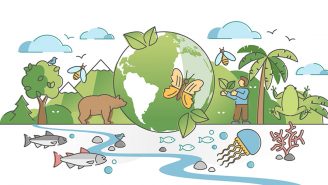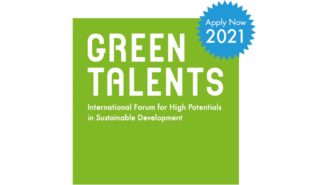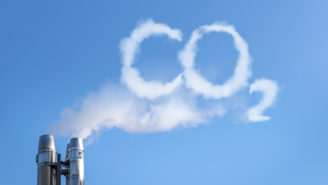-
Mulitlateral cooperations on H2 with Japanese and German partners
Sustainable Hydrogen Technology as Affordable and Clean Energy
Three projects with German partners have been selected in the call “Sustainable Hydrogen Technology as Affordable and Clean Energy” of the European Interest Group (EIG) Concert Japan (funding period FY2022 – FY2024).
-
 © DWIH/iStock.com/xavierarnau
Call
© DWIH/iStock.com/xavierarnau
CallEJEA Conference in Kagawa 2021: Call for Posters
[Deadline: 2021/09/15] The EJEA Conference in Kagawa on Human-centered Sustainability and Innovation for an AI-assisted Future: New Interdisciplinary Education & Research for the Next Stages in Japan and Europe, which will be held from October 22 to 24, 2021, and organised by the European Japan Experts Association (EJEA), Kagawa University, Fraunhofer Institute for Applied Information Technology FIT and the Institute for Security and Development Policy (ISDP), is now accepting submissions for contributions.
-
 © DWIH Tokyo/iStock.com/VectorMine
Toru Kumagai’s report on R&D trends in Germany
© DWIH Tokyo/iStock.com/VectorMine
Toru Kumagai’s report on R&D trends in GermanyConserving Biodiversity in Japan and Germany
August 25, 2021 [by Toru Kumagai] The German Federal Ministry of Education and Research (BMBF) is involved in countless research projects, one of which expresses Germany’s emphasis on environmental protection very well: a project aimed at preserving biodiversity. The BMBF summarizes it as follows: “About one million species of plants and animals are threatened with extinction worldwide. The decrease in biodiversity is one of the biggest challenges facing the scientific, economic and political communities.”
-
 © BMBF
Ausschreibung: Green Talents Award 2021
© BMBF
Ausschreibung: Green Talents Award 2021Bewerbungsphase für den Green Talents Award 2021 hat begonnen
[Deadline: 2021/05/19, 14 Uhr (MESZ)] Werde Teil eines renommierten Netzwerks für Nachhaltigkeitsforschung, erhalte Zugang zu Deutschlands führenden Forschenden und beteilige dich am internationalen Austausch zu innovativen grünen Ideen
-
 © DWIH Tokyo/iStock.com/Petmal
Toru Kumagai’s report on R&D trends in Germany
© DWIH Tokyo/iStock.com/Petmal
Toru Kumagai’s report on R&D trends in GermanyGerman and Japanese Electric Power Industries Embark on the Practical Applications of Hydrogen Energy
February 25, 2021 [by Toru Kumagai] The Federal Government of Germany published its national hydrogen energy strategy in June 2020, revealing that hydrogen will be one of the pillars for reducing carbon dioxide (CO2) emissions, as reported in the first article of this series. Research institutes and electric power companies in Germany as well as in Japan are currently propelling projects for the practical use of hydrogen energy.
-
 © DWIH Tokyo/iStock.com/acinquantadue
Toru Kumagai’s report on R&D trends in Germany
© DWIH Tokyo/iStock.com/acinquantadue
Toru Kumagai’s report on R&D trends in GermanyGermany’s Climate Policy — Challenges and Milestones
December 23, 2020 [by Toru Kumagai] Germany is one of the most ambitious countries in the world in its effort to reduce carbon dioxide (CO2) and other greenhouse gas emissions. The Merkel administration enacted the Klimaschutzgesetz (Climate Protection Law) on December 18, 2019, making the country the first in the world to mandate by law that its CO2 emissions targets should be achieved. Nevertheless, the transition towards a decarbonised economy will not go smoothly.
-
 © Kiyoshi Hijiki_Getty Images
Nachrichten: "Bioökonomie-Gesellschaft bis 2030"
© Kiyoshi Hijiki_Getty Images
Nachrichten: "Bioökonomie-Gesellschaft bis 2030"Japans Bio-Strategie 2020
Eine nachhaltige Lebens- und Wirtschaftsweise schützt Klima und Umwelt, aber garantiert auch künftigen Wohlstand. Sowohl Japan als auch Deutschland setzen auf den Ausbau der Bioökonomie. Die japanische Bio-Strategie hat das Ziel, Japan bis 2030 zu einer “hochmodernen Bioökonomie-Gesellschaft” zu machen und setzt auf die Beteiligung von Industrie, Hochschulen und Kommunen unter den Schlüsselwörtern “Nachhaltigkeit”, “Kreislaufwirtschaft” und “Gesundheit”.
- DWIH Tokyo
- Themen
- 2024: Künstliche Intelligenz: Mensch und Gesellschaft im Fokus
- 2023: Die resiliente Gesellschaft
- 2022: Nachhaltige Innovationen
- 2021: Gesellschaft im Wandel – Auswirkungen der Pandemie
- 2020: Städte und Klima
- 2019: Künstliche Intelligenz
- 2018: Innovatives Arbeiten in einer digitalisierten Welt
- Autonomes Fahren
- Nanotechnologie
- Netzwerk
- Forschung & Innovation
- Aktivitäten & Service
- Jahresberichte
